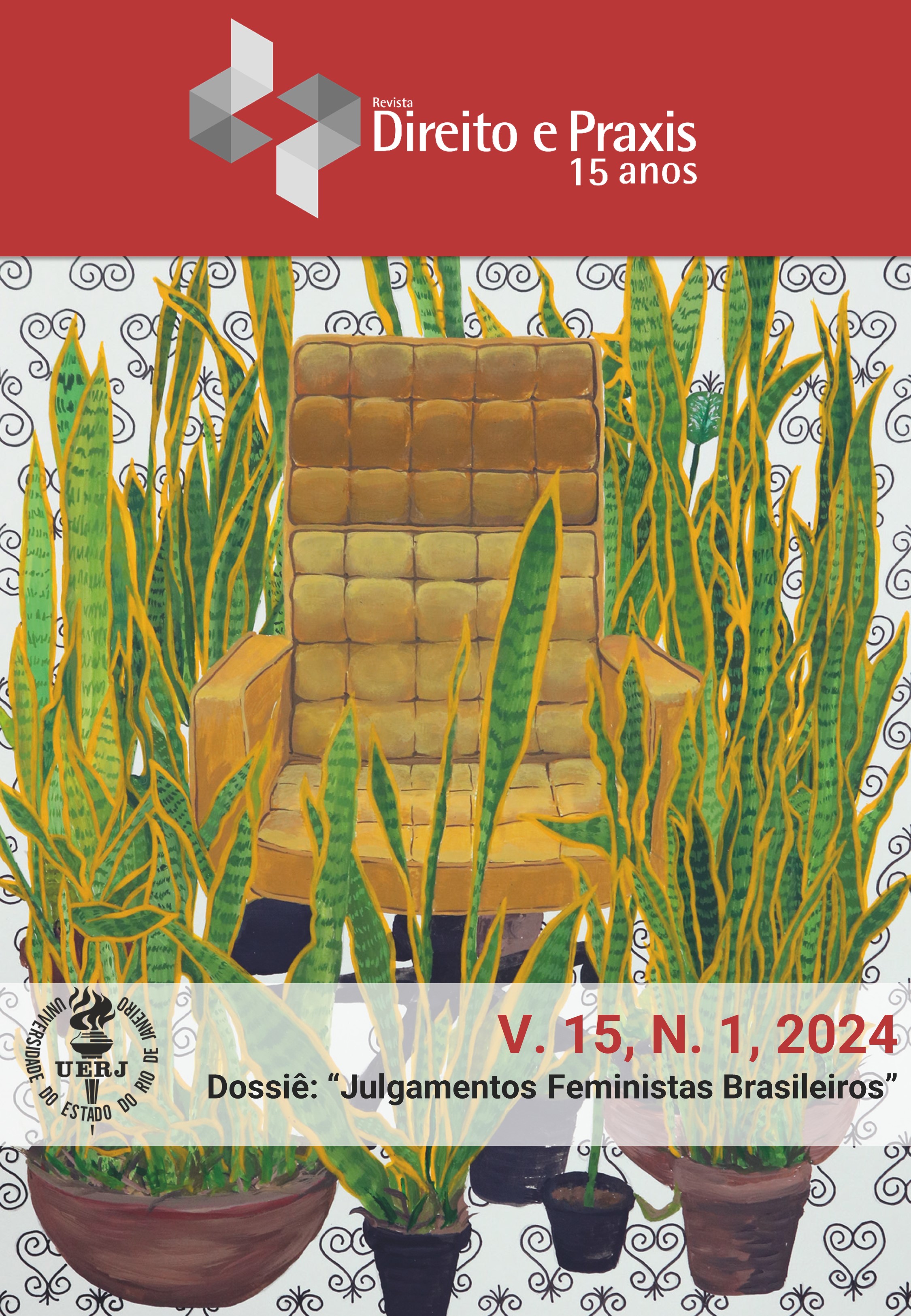Tensões entre identidade e colonialidade no julgamento da ADI 4275/DF
Palavras-chave:
Estudos decoloniais, Estudos queer, Gênero, Identidade, Nome social / Decolonial studies, queer studies, gender, identity, social name.Resumo
https://doi.org/10.1590/2179-8966/2022/66553
O artigo aborda as tensões existentes no âmbito da construção performativa das identidades das pessoas trans em relação à matriz colonial de poder que hierarquiza vidas na América Latina, particularmente no Brasil. O objetivo é analisar de que forma as reivindicações da população trans pelo reconhecimento de suas identidades, mais especificamente, pelo direito ao nome, são recebidas por respostas institucionais que são constitutivamente atravessadas por discursos que reintroduzem violências de raça, gênero e classe. Baseia-se, metodologicamente, na revisão de literatura e na análise documental do voto da ministra Cármen Lúcia no julgamento da ADI 4275/DF pelo STF, que reconheceu às pessoas trans o direito à alteração do prenome e da classificação de gênero que lhes foi imposta. Conclui-se que a decisão é limitada, porque perpetua o papel normalizador do Estado-nação, ao mantê-lo como detentor do dizer performativo sobre a identidade das pessoas, e reitera o binário homem/mulher, ao reintroduzir a abjeção dos corpos que não se identificam com os seus termos.
Palavras-chave: Estudos decoloniais; Estudos queer; Gênero; Identidade; Nome social.
Abstract
The article addresses the existing tensions in the context of the performative construction of identities of trans people concerning the colonial matrix of power that hierarchizes lives in Latin America, particularly in Brazil. The objective is to analyze how the demands of the trans population for the recognition of their identities, more specifically, for the right to a name, are received by institutional responses that are constitutively crossed by discourses that reintroduce racial, gender, and class violence. Methodologically, it is based on a literature review and documental analysis of the vote of minister Cármen Lúcia on the judgment of ADI 4275/DF by the STF, which recognized trans people the right to change their first name and gender classification imposed on them. It is concluded that the judgment is limited because it determines the normalizing role of the nation-state by keeping it as the holder of the performative saying about people's identity and reiterates the man/woman binary by reintroducing the abjection to the bodies that do not identify with its terms.
Keywords: Decolonial studies; queer studies; gender; identity; social name.
Downloads
Downloads
Publicado
Como Citar
Edição
Seção
Licença
Copyright (c) 2022 Revista Direito e Práxis

Este trabalho está licenciado sob uma licença Creative Commons Attribution 4.0 International License.
Os textos são de exclusiva responsabilidade de seus autores.
É permitida a reprodução total ou parcial dos artigos da Revista Direito e Práxis, desde que citada a fonte.
Este trabalho está licenciado sob uma Licença Creative Commons 4.0, Atribuição-Sem Derivações.
Esta licença permite copiar e redistribuir o material em qualquer suporte ou format para qualquer fim, mesmo que comercial, desde de que citada a autoria original.
This work is licensed under a Creative Commons Attribution 4.0 International License.




